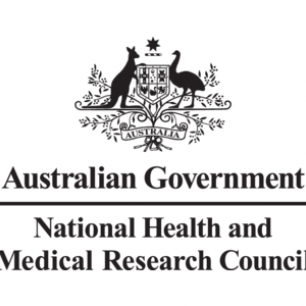A clinical trial of a novel smoking cessation pharmacotherapy; a study to identify risk factors for alcohol dependence in young people; an evaluation of the cost benefits of treatment for chronic non-cancer pain and research in e-health treatments for mental health and drug and alcohol problems have been awarded more than $4.37 million in health and medical project research funding and fellowships for the National Drug and Alcohol Research Centre at UNSW.
The National Health and Medical Research Council (NHMRC) 2015 funding round announced today by Minister for Health Sussan Ley includes a $1.85 million grant for a world-first randomised controlled trial (RCT) of a novel smoking cessation pharmacotherapy which early studies have indicated not only increase the chances of successfully quitting smoking but also reduce the costs to the health budget.
This head-to-head RCT will compare cytisine with another pharmacotherapy varenicline. Both treatments reduce cravings for nicotine, reduce the pleasurable effects of smoking and have been shown to be more effective than standard nicotine replacement therapy. Varenicline is significantly more expensive than cytisine costing the PBS $44 million in 2014. NDARC’s Director Professor Michael Farrell will lead the four year trial with NDARC Coinvestigator Dr Ryan Courtney, a Cancer Institute NSW Early Career Research Fellow.
Associate Professor Tim Slade and colleagues have been awarded $884,000 for a five year study, the RADAR project, which will follow 1,911 young adults age 17-21 to identify early warning signs in the development of alcohol use disorders in order to better target prevention and early intervention programs. The study will use the cohort of young people which were first recruited to NDARC’s ground-breaking Parental Supply of Alcohol Study at age 12.
Professor Louisa Degenhardt and colleagues have been awarded $775,000 to extend NDARC’s landmark Pain and Opioids in Treatment Study (POINT). The study, POINT 2, will analyse data from 1,500 patients collected over five years to evaluate the cost effectiveness of treatment for chronic pain. It will also identify those patients most at risk of developing problems, amid rising concerns over increased prescribing of strong painkillers and increased harms including dependence and overdose.
Other NDARC successes in the 2015 NHMRC funding round include:
- Associate Professor Frances Kay-Lambkin has been awarded a five year NHMRC Senior Research Fellowship to further her research into eHealth (online) treatments for comorbid mental health and drug and alcohol problems;
- Dr Amy Peacock has been awarded an Early Career Fellowship to support her work identifying mortality and morbidity risk associated with alcohol use disorder, early risk and protective factors for onset of risky drinking, and rates of alcohol use and harms across Australian night-time entertainment districts.
Director of NDARC Professor Michael Farrell said he appreciated the funding support shown to NDARC projects in what was a tough funding environment with less than a fifth of health and medical projects nationally being funded.
“Conservative estimates put the total cost of misuse of tobacco, alcohol and illicit drugs in Australia at over $30 billion a year,” said Professor Farrell. “The new projects which have been funded at NDARC cover some of the most high-prevalence and costly public health issues facing Australia – tobacco smoking; alcohol misuse and the emerging issue of increased prescribing for chronic pain which has been accompanied by rising harms.
“These projects are aimed at giving hard evidence about what treatments work and importantly they include a cost benefit assessment to ensure that public funds are directed where they can make the most impact – crucial given that Australia’s Health Budget is under increasing pressure from an ageing population and the increasing costs of new technologies.”
A non-inferiority trial of cytisine versus varenicline for smoking cessation
Prof Michael Farrell, Dr Ryan Courtney, Dr Natalie Walker (UAuck), Dr Hayden McRobbie (QMUL), Dr Coral Gartner (UQ), Prof Mohammad Siahpush (UNebr), Dr Dennis Petrie (UMelb), A/Prof Christine Paul (UNewc), Professor Robyn Richmond, A/Prof Stuart Ferguson (UTas).
Pharmaceutical opioids for chronic non-cancer pain: Evaluating health outcomes and economic impact over five years
Prof Louisa Degenhardt, Prof Fiona Blyth (USyd), Prof Richard Mattick, Dr Marian Shanahan, Prof Milton Cohen, Assoc Prof Nick Lintzeris (USyd), Assoc Prof Raimondo Bruno (UTAS), Dr Suzanne Nielsen, Assoc Prof Timothy Dobbins, Dr Briony Larance
The RADAR project: Identifying early warning signals on the pathways to alcohol use disorder
A/Prof Tim Slade; Dr Wendy Swift; Prof Kyp Kypri (Uni of Newcastle); Prof Michael Lynskey (Kings College London); Dr Louise Mewton; A/Prof Peter Butterworth (ANU).
Media contacts:
Marion Downey
Communications Manager, National Drug and Alcohol Research Centre
P: (02) 9385 0180 | 0401 713 850 | m.downey@unsw.edu.au
Alexandra Dore
Communications Officer, National Drug and Alcohol Research Centre
P: (02) 9385 0124 | 0432 894 776 | alexandra.dore@unsw.edu.au


